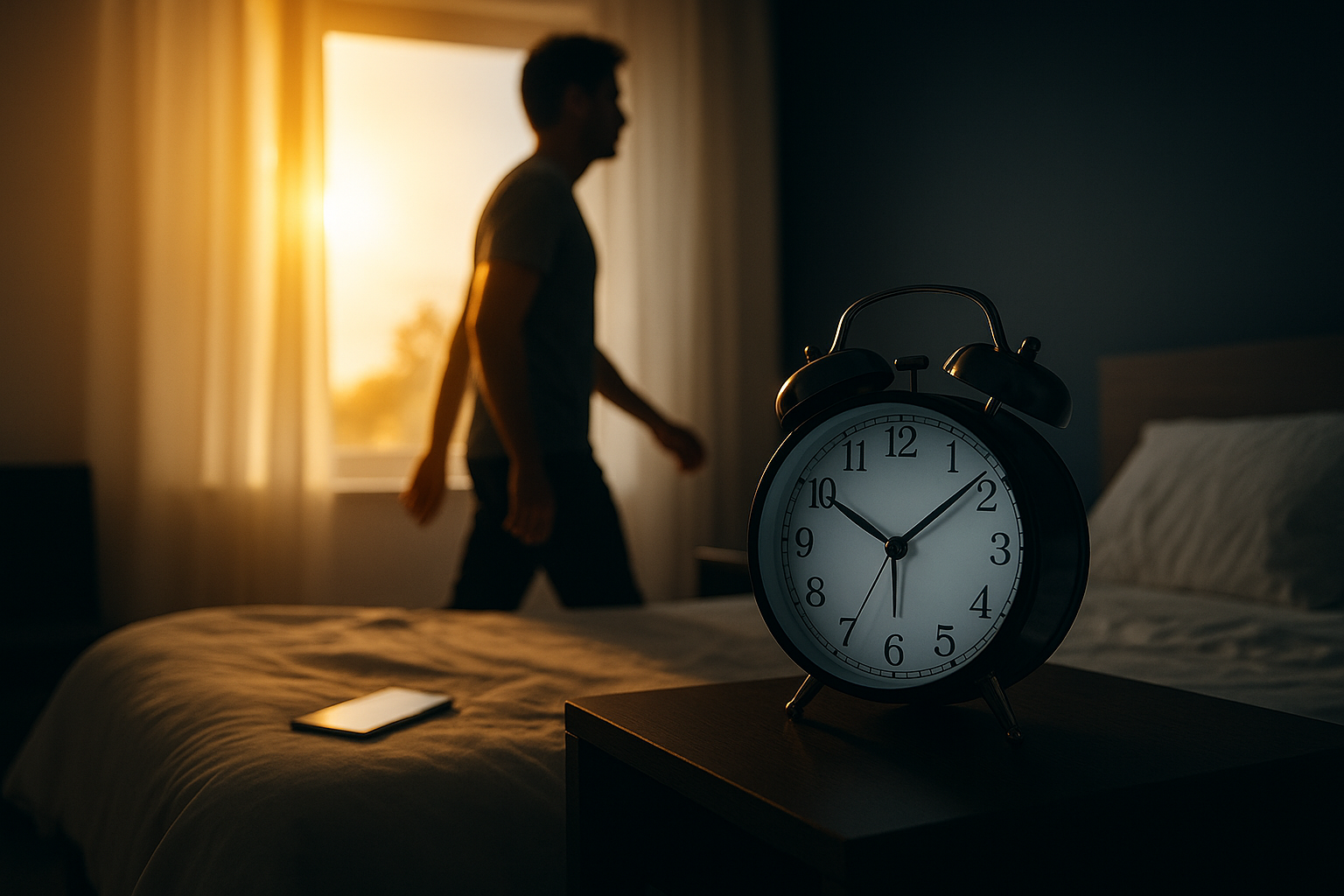"The Relevance of Circadian Rhythm in Modern Health"
The circadian rhythm, our biological clock, is a crucial but often overlooked aspect of health. While many of us are aware of the importance of exercise and diet, our internal body clock's role in our wellness is seldom highlighted. So, what is the circadian rhythm, and why is it so important in maintaining our health and wellness?

What Is The Circadian Rhythm?
The circadian rhythm, often referred to as our body’s internal clock, governs our sleep-wake cycle, hormone production, and other physiological processes. It is primarily influenced by light and darkness and operates on approximately a 24-hour cycle. The concept of the circadian rhythm dates back to the 18th century when French scientist Jean-Jacques d’Ortous de Mairan observed that plants continued their daily cycles even in constant darkness.
However, it wasn’t until the 20th century that the importance of the circadian rhythm in human health was recognized. Further studies have since revealed that disruption of the circadian rhythm can lead to a host of health issues, including sleep disorders, obesity, and mental health problems.
The Modern Relevance of Circadian Rhythm
Our fast-paced lifestyles and reliance on technology often lead us to ignore our body’s natural rhythms. Consequently, many of us unwittingly disrupt our circadian rhythm by working late, using electronic devices before bed, or eating at irregular times.
Research has shown that such disruptions can increase the risk of metabolic syndrome, a combination of conditions including high blood pressure and obesity, which increases the risk of heart disease and diabetes. Other studies have linked circadian rhythm disruption to mental health disorders such as depression and anxiety.
The Science Behind Circadian Rhythm and Health
The connection between the circadian rhythm and health is rooted in our evolutionary history. Our ancestors lived in sync with the sun: they were active during the day and rested at night. This lifestyle naturally aligned with their circadian rhythm.
However, modern life often forces us to defy these natural rhythms. The light from electronic devices can trick our brains into thinking it’s daytime, disrupting our sleep-wake cycle. Irregular eating patterns can also confuse our internal clocks, leading to metabolic disturbances.
Balancing Circadian Rhythm For Better Health
Given the importance of the circadian rhythm in health, it’s crucial to strive for a lifestyle that aligns with our body’s natural rhythms. Here are some tips to help maintain a healthy circadian rhythm:
-
Try to wake up and go to bed at the same time every day.
-
Limit exposure to electronic devices in the evening.
-
Eat meals at regular times each day.
-
Try to get outside during daylight hours, even if it’s just for a short walk.
-
Avoid caffeine and alcohol, especially in the hours leading up to bedtime.
Concluding Thoughts
In conclusion, the circadian rhythm is a fundamental aspect of our health that often goes unnoticed. By understanding its role and taking steps to align our lifestyles with our natural rhythms, we can improve our health and well-being. Remember, wellness is not just about what we do, but also about when we do it. By paying attention to our circadian rhythm, we can better sync with our body’s inherent needs and rhythms, leading to a healthier, happier life.




